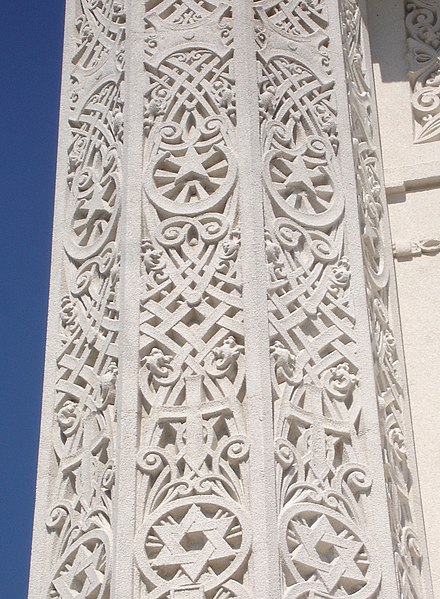The Baháʼí conception of God is of an "unknowable essence" who is the source of all existence and known through the perception of human virtues. The Baháʼí Faith follows the tradition of monotheism and dispensationalism, believing that God has no physical form, but periodically provides divine messengers in human form that are the sources of spiritual education. In another sense, Baháʼí teachings on God are also panentheistic, seeing signs of God in all things, but the reality of God being exalted and above the physical world.
A ring engraved with the Ringstone Symbol, which symbolises the role of Manifestations in connecting God with his creation.
The Baháʼí Faith is a religion founded in the 19th century that teaches the essential worth of all religions and the unity of all people. Established by Baháʼu'lláh, it initially developed in Iran and parts of the Middle East, where it has faced ongoing persecution since its inception. The religion is estimated to have 5 to 8 million adherents, known as Baháʼís, spread throughout most of the world's countries and territories.
Seat of the Universal House of Justice, governing body of the Baháʼís, in Haifa, Israel
Baháʼí House of Worship in Ingleside, Sydney, Australia
Symbols of many religions on a pillar of the Baháʼí House of Worship in Wilmette, Illinois, U.S.
The Baháʼí gardens in Haifa, Israel





